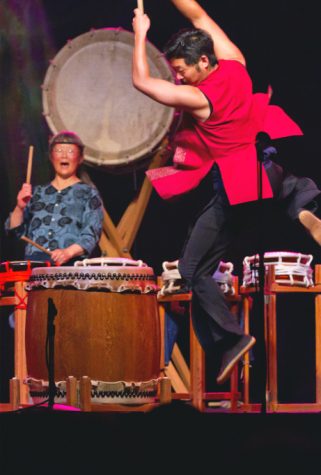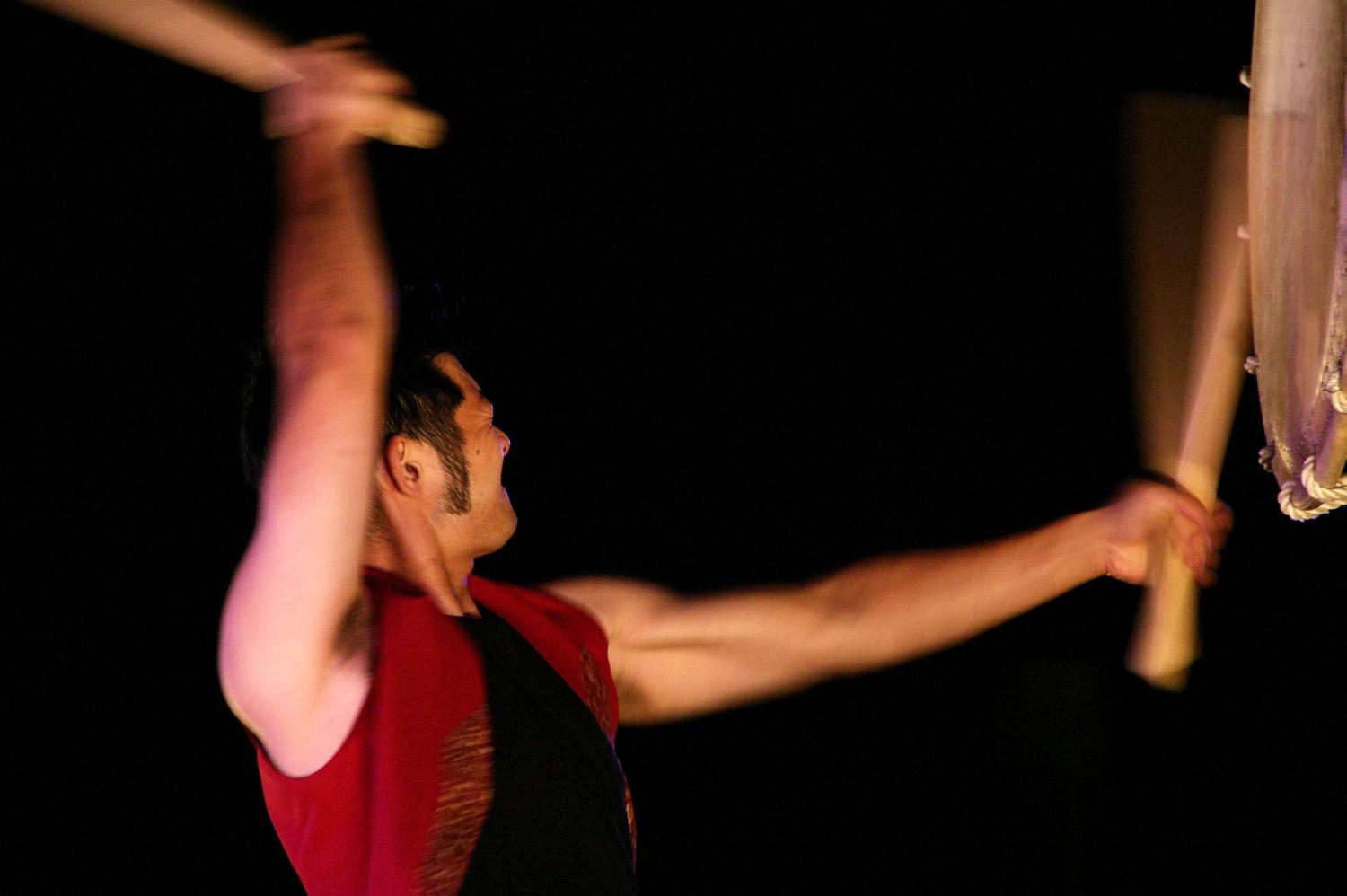Taiko drums to ‘communicate through sounds and feelings’
On Ensemble will take over Jones Theatre to demonstrate taiko music
Masato Baba of On Ensemble will perform on taiko drums at 7:30 p.m. Sept. 13 at Jones Theatre in Daggy Hall.
September 7, 2017
Spanning hundreds of years, the evolution of taiko drumming represents the fusion of cultures throughout the world.
On Ensemble, started by childhood friends Masato Baba and Shoji Kameda, formed in college after studying under a master in Hawaii. They both learned taiko as children from Baba’s parents.
Gail Siegal, director of WSU Performing Arts, said that the program strives to feature music from around the world every year. She strives to feature performances that are both educational as well as entertaining.
Narrowing choices comes down to availability and timing, since the world has so much talent, she said. Siegal usually picks groups touring the Pacific Northwest or relatively new performers, while trying to find a diverse range of genres and performers.
“We have the opportunity to see a diverse range of culture right on campus without having to travel anywhere,” Siegal said.

Taiko drumming originated as a form of communication hundreds of years ago in Japan.
On Ensemble brings elements of jazz and electronic music to their performances which makes it more appealing to students in relation to other taiko groups, she said. They bring a blend of contemporary elements to the traditional taiko.
Historically, taiko originated hundreds of years ago in Japan, Baba said. The way you perform it now differs greatly from how it started as a form of communication.
“A lot of people say the taiko you see today is younger than rock ’n’ roll,” Baba said. “I hope that taiko will become a commonplace instrument in households, like a guitar or piano.”
They also incorporate other cultural styles of music, such as Tuvan throat singing, she said. Tuva throat singing comes from central Asia.
The different genres of music in On Ensemble’s performance has a lot to do with each group member’s background, Baba said.
“In high school I was in a rock band,” he said. “To me, any kind of music influences you, especially if you’re a musician. It affects you in certain ways.”
For example, Kameda went to Bali to study gamelan and Mongolia to learn throat singing, Baba said. For a lot of elements the group has interest in, they try to incorporate it where they can.
The taiko community is very small, he said. So everyone takes care of each other and can refer each other to different things.
In order to perform, Baba said he often has to have the right mindset at the time. Baba also plays for another group which involves more physical performing, so he often has to drink a coffee before playing.
But in On Ensemble, he said, he needs to relax, breathe, eat a little and make sure he has the right mind space. This process has become automatic for him by now, he said.
On Ensemble will perform at 7:30 p.m. Sept. 13 at the Jones Theatre in Daggy Hall. Admission is free for WSU students. To reserve tickets ahead of time, students can bring their WSU ID to Beasley Coliseum anytime from 10 a.m. to 2 p.m. Monday through Friday.
“A lot of music, to me, is communication,” Baba said. “We all speak our own language and music is a different language which we can communicate through sounds or feelings.”










